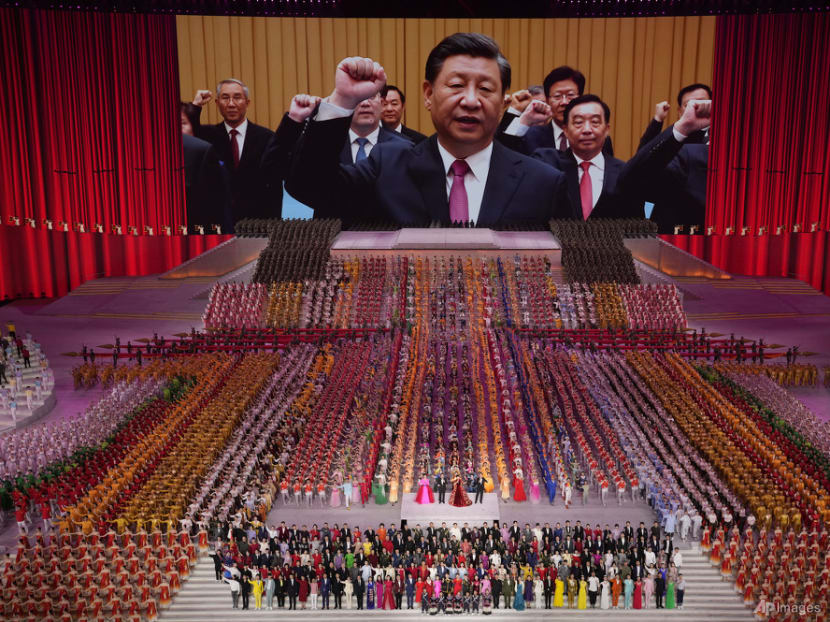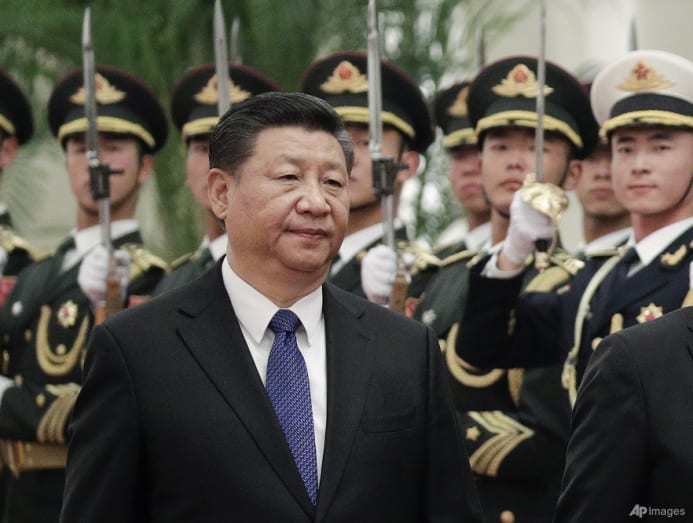Commentary: Will Xi Jinping be blamed for China's zero-COVID failures?
President Xi Jinping is expected to seek a third term as party leader in a crucial party congress later this year. Having claimed credit for the early success of zero-COVID, he would struggle to avoid blame for the policy’s breakdown, says the Financial Times' Gideon Rachman.

LONDON: The government of China does not have the legitimacy that flows from winning an election. But officials in China often claim that the Communist Party benefits from something even better: “Performance legitimacy”.
The idea that the Chinese government easily outperforms the dysfunctional West has been pushed hard during the COVID-19 crisis. At a ceremony in 2020, President Xi Jinping proclaimed that “the pandemic once again proves the superiority of the socialist system with Chinese characteristics”.
On the first anniversary of the outbreak of the virus in Wuhan, the city hosted an exhibition on China’s successful battle against the disease, featuring, as the BBC reported, “models of medical workers in hazmat suits . . . and everywhere you look, giant portraits of Xi Jinping”.
But Xi’s triumphalism is coming back to haunt him. The “zero-COVID” policy is breaking down.
DOOMED EFFORT TO CONTAIN OMICRON THROUGH LOCKDOWNS
Shanghai, a city of 26 million people, has been locked down for five weeks in a desperate effort to suppress the virus – with alarming stories of people going hungry or stir crazy, as they struggle with enforced confinement.
The authorities now claim that the Shanghai lockdown is being gradually eased. But there are mounting fears that Beijing may be the next megacity to be locked down.
Many less prominent urban areas are already subject to severe restrictions. All told, some 345 million people are currently thought to be living under full or partial lockdowns, across 46 different cities.
The underlying problem is that the Omicron version of COVID-19 is highly transmissible. So any effort to stuff the COVID-19 genie back into the bottle may be doomed.
The social, psychological and economic effects of Shanghai-style lockdowns are dire. But it is the political effects that may worry Xi the most.
COULD XI JINPING'S PLANS BE DERAILED?
The Chinese leader is approaching a critical juncture in his reign. This year, he will complete two terms as general secretary of the Chinese Communist Party – the point at which his two predecessors stepped down.
But Xi intends to stay on. That will have to be agreed upon at the crucial 20th congress of the Communist Party – which will probably take place in November. A third term as party leader would entrench Xi’s personal grip on the country.
In recent years, Xi Jinping thought has been written into the Communist Party’s constitution, and term limits on the Chinese presidency have been abolished. To ensure that the further consolidation of Xi’s personal power goes ahead as planned, the Xi cult must remain unblemished.
But now the Chinese leader faces the nightmarish prospect that the months running up to the party congress will be marred by an economic crunch and social tensions caused by repeated lockdowns.
One obvious way out would be to move towards a Western-style policy of living with the virus. But while some Western governments mishandled their initial response to COVID-19 because of excessive libertarianism, Xi and the Communist Party suffer from the opposite problem: Excessive control freakery.
Their ingrained instinct is to respond to the spread of the pandemic by demanding ever greater discipline and sacrifice from the Chinese people.
HARD TO AVOID BLAME FOR POLICY FAILURES
The new phase of the pandemic is also exposing dangerous flaws in China’s initial response to the virus. The early success of the zero-COVID strategy ensured that deaths in China have been in the low thousands, compared to more than a million deaths in the United States. That was a genuine triumph.
But lulled by the success of the zero-COVID strategy, China has been too lax about vaccination. Large numbers of old people have not been fully vaccinated. It also looks as if China’s homemade vaccines provide weaker protection than the mRNA vaccines that have been critical to the Western response.
The combination of these two factors means Chinese officials are terrified that, if they let Omicron rip, millions of their compatriots could die.

That would be a national tragedy. It would also be politically toxic for Xi. Having claimed the credit for the early success of zero-COVID, he would struggle to avoid blame for the policy’s breakdown.
Local officials can be made to take the blame for the agony of the prolonged Shanghai lockdown. But similar lockdowns on a national basis would unavoidably raise the question of the national leadership.
The economic price that China will pay is also likely to mount in the coming months. Supply chains are already seizing up and investment is falling because of the uncertainty over future lockdowns.
At some point all of this could lead China’s elite to ask the obvious and overwhelming question – does it make sense for Xi’s rule to be extended?
It is not just that the Chinese leader has made mistakes. It is also that any governing system that invests so much power and prestige in a single individual is vulnerable to catastrophic errors that the system cannot correct.
The Taiwanese intelligence service – which probably has a better sense of what is happening on the mainland than most – has just issued a report suggesting that there are, as yet, no signs of a challenge to Xi’s leadership.
But the vital party congress could still be six months away. In the intervening months, repeated lockdowns could test China’s society and the economy as never before. Xi’s continued grip on power can no longer be taken for granted.




